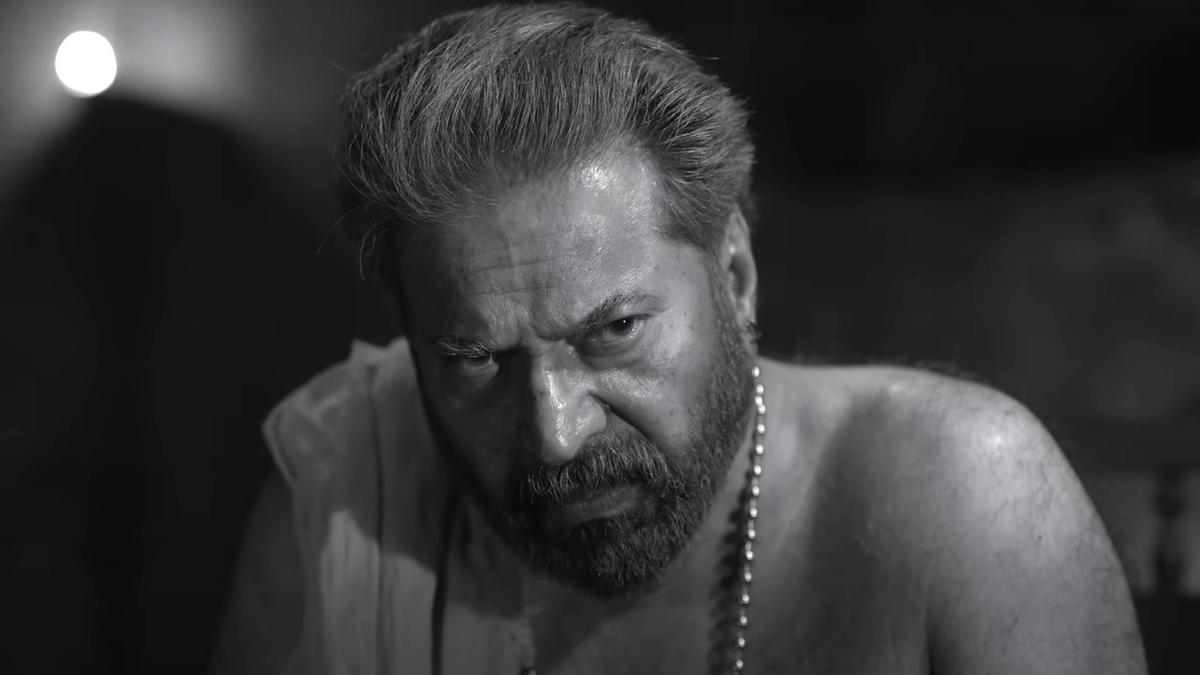In the challenging pathways of artistic pursuit, where creativity weaves with personal identity, Maestro boldly departs from conventional narratives that often romanticize the professional struggles of an artist. Instead, it immerses itself in the intricate symphony of emotions shaping the titular genius, Leonard Bernstein (Bradley Cooper). Unhurriedly, the film navigates the delicate balance between his love for his wife, actor Felicia Montealegre Cohn Bernstein (Carey Mulligan), and family, and the clandestine currents of same-sex relationships swirling within him. Leonard’s struggle extends beyond concert halls and compositions; it reaches into the private realms of his identity, where family life clashes with a diverse spectrum of love and desire. At the heart of this melodic journey lies the delicate force of love, a muse that wafts through the composer’s mind like a gentle breeze carrying the sweet fragrance of inspiration. The film not only celebrates the artistic genius of its protagonist but also offers a nuanced exploration of his internal conflicts, acknowledging that the journey to self-discovery is often as tumultuous and beautiful as the most captivating musical masterpiece.
The film begins with Leonard in his 70s, interviewed at home as he plays a sequence on his piano from his opera A Quiet Place. In the interview, he reveals the profound impact of Felicia, his wife for many years, even mentioning seeing her ghost. The story then shifts back to 1943, when the 25-year-old Leonard, serving as the assistant conductor of the New York Philharmonic, unexpectedly debuts as a conductor, earning fame with a stellar performance. Despite being in a relationship with clarinetist David Oppenheim, Leonard falls for aspiring actress Felicia at a party, sparking a passionate romance. Following a breakup with David, Leonard and Felicia marry, supporting each other through successful careers and raising three children. By the mid-1950s, the Bernsteins enjoy a glamorous life, with Leonard achieving success in opera and Broadway. Despite Felicia dismissing concerns about Leonard’s affairs, his dalliances, coupled with substance abuse, strain their marriage. Denying rumors, Leonard faces a Thanksgiving confrontation, leading to a strained relationship. However, they remain married. In 1973, Leonard conducts a legendary performance of Mahler’s Resurrection Symphony in Ely Cathedral, where Felicia reunites with him. Felicia’s diagnosis of metastatic breast cancer leads to a heartbreaking decline, and she dies with her family around. In 1987, Leonard is shown teaching conducting to a group of young students. Later in the night, he parties with one of the students in a pub. Returning to the interview, he reflects on missing Felicia terribly.

In a daring leap of zeal and flair, Cooper directs his sophomore effort with a fervor and vision that mirrors the maestro at the height of his passion and ecstasy. While this filmmaking style might come off as esoteric and flamboyant, not catering to everyone’s taste, there’s much to applaud. Unfurling the tale in a non-linear pattern, the film unfolds like a kaleidoscopic montage of Bernstein’s vivid moments – from dazzling career crescendos to the thunderous clashes of his marital tensions. Cooper, with dynamic and pulsating verve, both as an actor and director, stitches these fragments together, creating a pulsating canvas that captures the very essence of the music composer and conductor’s unbridled spirit. The screenplay, crafted by Cooper and Josh Singer, gracefully navigates the contradictory dichotomies within this enigmatic individual, adding layers of complexity and exploring his homosexuality with subtlety. The dramatic events unfold in a dual embrace, with one segment draped in timeless black and white, donning an aspect ratio of 4:3, while the other, painted in the hues of life, boasts a widescreen spectacle at 1.85:1. This cinematic dichotomy serves as a visual harmony, charting the evolution from the lively and buoyant connection between Bernstein and Felicia to the tumultuous phase of emotional discord in their lives. In the monochromatic embrace, joy resonates through the couples’ moments, yet as the canvas erupts into vibrant colors, the strings of happiness seem to untangle, echoing the unravelling strains of their relationship.
Maestro is more of a love story masquerading as a biopic, and the script grapples with finding a harmonious balance. Felicia plays an active role in maintaining Bernstein’s family and providing him with emotional support. From remembering schedules to offering unwavering support, she, the woman behind the scenes, becomes the unsung hero of the maestro’s success. However, simultaneously, she tolerates her husband’s flings and connections with male partners, leaving scars beneath the surface of her persona. Yet, these aspects yearn for a connecting strand, a melodic embrace that binds the interrelatedness between scenes. The episodic nature of scenes, though exuding a detached charm, sacrifices straightforwardness at the altar of aesthetic rigor.

Bradley Cooper skillfully captures the warring dualities of the great conductor-composer Leonard Bernstein, dominating most of the screen time. He portrays emancipation as the protagonist, finding the courage to harmonize the disparate notes of his life. Cooper paints a touching portrait of a man navigating the delicate interplay between love, desire, and the pursuit of artistic brilliance. In her portrayal of Bernstein’s wife, Felicia Montealegre, Carey Mulligan seamlessly assimilates and navigates every affectionate gesture and subtle affront from her husband. Executing a performance characterized by reactivity, Mulligan infuses the character with a touching commonality, bringing vitality to a role that might otherwise be overshadowed by Bernstein’s towering figure. The remaining members of the supporting cast were relegated to mere filler roles during the extended stretches of the story.
Matthew Libatique‘s cinematography skillfully frames the physical togetherness of Leonard and Felicia, simultaneously underscoring the emotional chasm that separates their worlds. It captures the nuanced intricacies of their relationship, with even the uninterrupted long shots pregnant with meaning. Michelle Tesoro’s editing orchestrates a gradual crescendo, weaving a tightly knit pattern that prevents any slackening of pace. It imbues the entire film with a subtle undercurrent of drama. The sound design by Steven Morrow, Richard King, Jason Ruder, Tom Ozanich, and Dean A. Zupancic showcases their prowess, striking a tuneful balance. Their expertise extends beyond capturing Leonard Bernstein’s memorable music and conducting sessions to adeptly capturing and sustaining the periodic and emotional mood of the film. The makeup department, consisting of Kazu Hiro, Kay Georgiou, and Lori McCoy-Bell, deserves special mention as they make the aging process for the characters appear incredibly organic.
In the grand orchestration of Maestro, Bradley Cooper and Carey Mulligan command the stage with their powerhouse performances. While technically adept, the filmmakers’ struggle to bestow the script with the same mastery doesn’t slip past the discerning eye. Alas, if only it echoed the same brilliance, the film could have soared to exhilarating heights. As it stands, while reaching occasional peaks, these highs struggle to harmonize into a satisfying whole.





